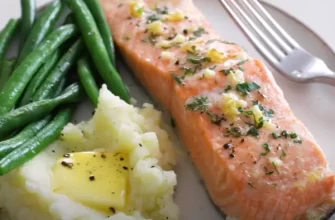Embarking on a diet consisting of bread, water, and multivitamins may sound simple and minimalistic. However, making these the exclusive components of your diet raises some questions about nutritional balance and overall health.
What is the Bread, Water, and Multivitamin Diet?
Essentially, this diet involves consuming only bread, the staple food providing energy; water, the essential beverage for hydration; and multivitamins, nutritional supplements packed with various vitamins and minerals. The intention behind such a diet might be to limit calorie intake or simplify food choices.
Is It a Good Idea?
Although simplicity might appeal, nutrition experts would likely discourage such an extreme diet. While bread may provide energy and multivitamins could supplement certain nutrients, this regimen lacks diversity in essential macronutrients and micronutrients. Swap the bread for whole foods and grains with high fiber, eat lean proteins and include vegetables & fruits rich in antioxidants. Always consult a professional to ensure any diet is balanced and beneficial.
Pros of the Bread, Water, and Multivitamin Diet
Could a bread, water, and multivitamin diet be advantageous? Yes, in some ways it might be.
Weight loss potential
Consider the potential for weight loss. A diet of bread and water is low in calories, which may initially promote weight loss. Bread supplies carbohydrates, our bodies’ primary energy source, while water is calorie-free, also aiding weight loss. The multivitamins may help to bridge some nutritional gaps, but they aren’t a replacement for well-rounded meals.
Simplicity and affordability of the diet
The second advantage of this diet lies in its simplicity and affordability. Bread is commonly available and often low in cost compared to other food items. Multivitamins can provide a range of nutrients, while water is free, universal, and vital for survival. Notwithstanding these pros, consulting a healthcare professional is critical before adopting any major dietary changes.
Cons of the Bread, Water, and Multivitamin Diet
While the bread, water, and multivitamin diet may initially appear attractive due to its simplicity and potential for weight loss, it possesses significant downsides. One such downside is the risk of nutritional deficiencies and imbalances that this diet may inflict.
Nutritional deficiencies and imbalances
Relying excessively on bread as a main source of nutrition may lead to a lack of important nutrients like proteins, beneficial fats, and various vital vitamins and minerals. Similarly, relying too heavily on multivitamins can cause imbalances since they cannot fully replace a balanced diet.
Lack of variety and sustainability
A diet that includes nothing but bread, water, and multivitamins is extremely restrictive in terms of the range of foods available, which can quickly become repetitive. This limited variety not only makes the diet unmanageable in the long run but may also have a detrimental effect on mental health and general well-being. It is always recommended to seek advice from a healthcare expert prior to embarking on any new dietary regimen.
Health Risks and Potential Dangers
Experts in nutrition caution that following this diet may result in deficiencies since it does not provide adequate amounts of crucial nutrients. To maintain optimal health, your body requires a diverse range of nutrients obtained from various sources, rather than solely relying on bread or multivitamins. The diet’s lack of balance can give rise to health issues like a weakened immune system, low energy levels, and a heightened vulnerability to chronic ailments.
Balanced and Diverse Eating for Optimal Health
Experts advise that for maximum health benefits, it is advisable to consume a varied and well-balanced diet. This entails incorporating a wide range of fruits and vegetables, lean protein sources, whole grains, and healthy fats into your meals. Apart from enhancing the pleasure of eating, having diversity in your diet helps ensure that your body receives all the necessary nutrients it requires to achieve optimal health.
Alternatives to the Bread, Water, and Multivitamin Diet
Considering the bread, water, and multivitamin diet’s popularity, it is essential to explore viable alternatives that are healthier and sustainable in the long term.
Healthy and sustainable dietary approaches
In terms of losing weight and being healthy in general, it is generally recommended to have meal plans that are balanced and varied. Having a diet that includes lean proteins, fruits, vegetables, whole grains, and healthy fats can give your body the essential nutrients it needs for overall health, energy, and wellbeing.
Importance of a well-rounded meal plan
While the bread, water, and multivitamin diet might seem appealing due to its simplicity, a well-rounded nutritional plan outshines it. This approach not only promotes balanced nutrient intake but also offers a vast array of flavors to keep the process interesting and sustainable. It is crucial to remember that maintaining a healthy diet should not be a temporary phase but a lifelong commitment to overall health and wellness.









